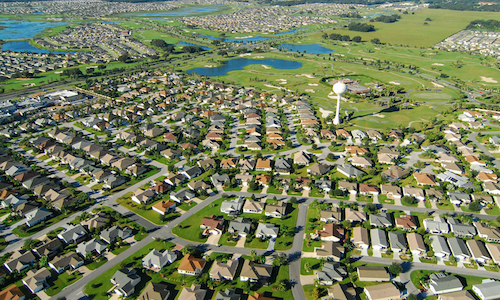Real estate agents are concerned that political uncertainty and the disruptive nature of new technology will affect their business this year, according to the Counselors of Real Estate (CRE).
CRE unveiled its 2017-2018 Top Ten Issues Affect Real Estate list Wednesday after surveying 1,100 members on current issues and trends impacting the industry. The list is wide-ranging, as agents listed issues such as geopolitics, increasing automation, stagnant wages and climate change.
Here are the top 10 issues impacting agents, according to CRE:
- Political polarization and global uncertainty.
Political strife and global instability is possibly the greatest threat to the world as well as the real estate profession, CRE writes. More locally, the polarization of American politics could make solving issues like infrastructure and interest rates much more difficult to solve. - The technology boom.
There are at least 1,600 real estate tech start-ups whose goal is in some way to disrupt the current industry. They are gaining steam: $2.7 billion was invested in such firms in 2016, compared to just $186 million in 2011, according to CRE. Recently, Zillow’s “Zestimate” and “Instant Offers” tool has drawn harsh criticism from agents for seemingly removing them from some homebuying equations. - Generational disruption.
Millennials are now the biggest homebuying population in the country, and it turns out their tastes differ greatly from previous generations. Already that is causing a wrinkle in the industry: intense competition for urban homes are causing prices to skyrocket, while McMansions in far-off suburbs sit vacant. - Retail disruption.
This has more to do with commercial real estate. The death of the brick and mortar shopping destination has been much hyped. And though this may be a market correction for an “over-retailed” country, the effect is that less retail space is needed, hurting commercial real estate brokers, CRE said. - Infrastructure investment.
This may be the only issue where both major political parties can find common ground, but it isn’t a done deal yet. - Housing: the big mismatch. This refers to the inventory problems facing some areas, as affordable housing is not available where it is needed, and available housing is not in places buyers desire. “A critical disparity exists between housing needs and housing supply,” CRE writes.
- Lost decades of the middle class.
Despite some economic gains following the recession, middle-class incomes have yet to recover. Working class disenchantment has led to more populist politics, CRE notes, as Americans face automation and outsourcing. - Real estate’s emerging role in health care.
The population is aging, and medical facilities are needed to serve this group. That means the need for more clinics, pharmacies and service centers, which will require agents to broker those land deals. - Immigration.
A reduction in immigration to the U.S. – which some have predicted under the current administration – would reduce the need for housing. - Climate Change.
We know well the risks climate change poses to homeownership, especially for those in coastal cities. Beyond sea level rise, more forceful storms caused by climate change will hurt homeowners by way of increased maintenance and repairs costs as well as insurance premiums.

